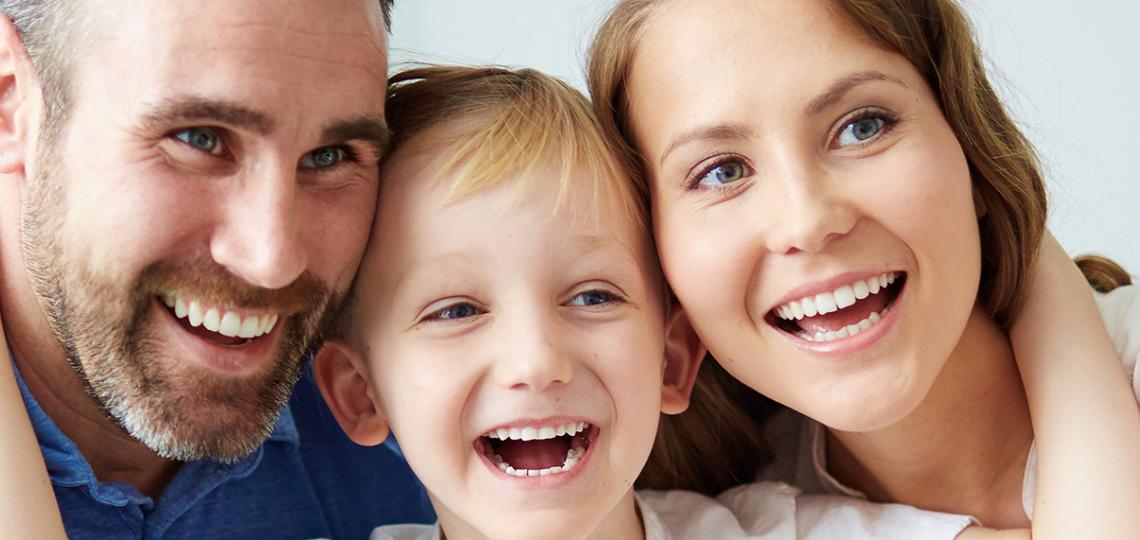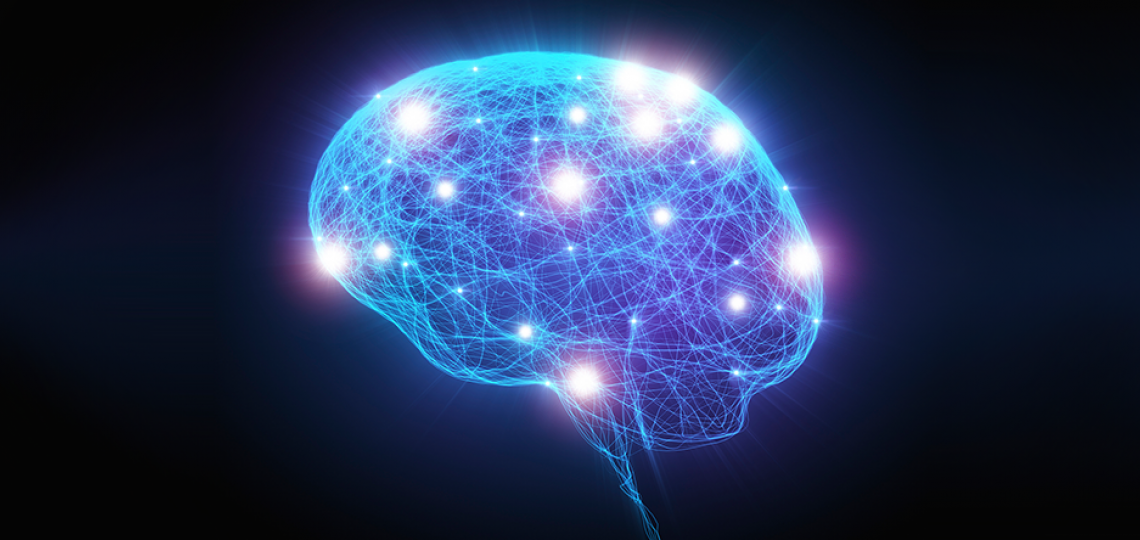
Optimizing Behavioral Health in Spaceflight
The Translational Research Institute for Space Health (TRISH) funds cutting-edge research into the behavioral health challenges facing astronauts on deep space exploration travel.
Current Behavioral Health Research
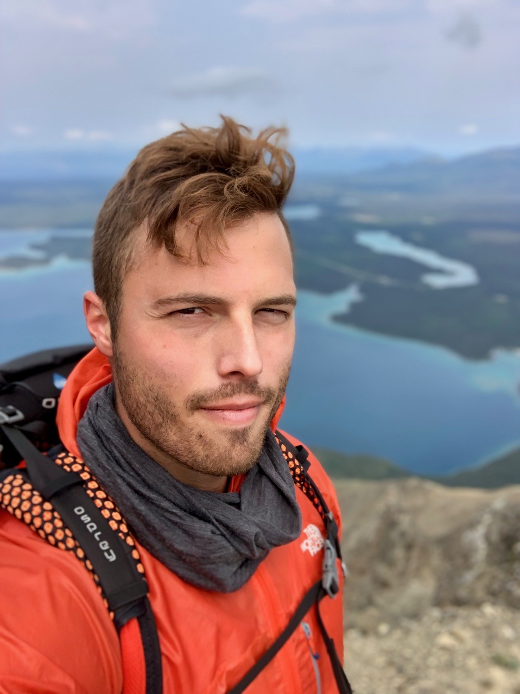
Research: Manipulating Sleep Architecture as an Operational Countermeasure
Institution: University of Michigan, Ann Arbor, MI
Project dates: Aug. 1, 2020 – July 31, 2023
NASA Risk Addressed: Risk of adverse cognitive or behavioral conditions and risk of performance decrements and adverse health outcomes resulting from sleep loss, circadian desynchronization, and work overload (BMed/Sleep)
Project: Space exploration exposes humans to unique stressors that if not addressed compromise physical and psychological health and performance. Sleep is known to promote physiologic resilience making it paramount in challenging circumstances, but all sleep is not the same. Progressive, stereotyped sleep stages are common in mammals and form a basic structure known as “sleep architecture”. High homeostatic value has been placed on slow-wave sleep (SWS), which is the deepest state of sleep characterized synchronous 1–4 Hz brain oscillations. This proposal aims to use a novel translational model, the wild red squirrel, to identify critical conditions for which enhancing SWS through non-invasive audio stimulation may mitigate the influence of stressors or augment performance.

Previously Funded Investigations

Research: Photobiomodulation to Ameliorate Neuronal Degeneration and Cognitive Decline after Mixed Field Irradiation
Institution: University of Arkansas, Little Rock, Little Rock, AR
Project dates: Jan. 1, 2019 – Dec. 31, 2020
Grant Mechanism: Single PI grant
Study type: Ground study
NASA Risk Addressed: Biomedical
Problem Addressed: Exposure to space irradiation presents a significant risk to flight crews in the course of prolonged space exploration, yet there is currently no therapy that can reverse the effect of radiation-induced cognitive dysfunction.
Major Aim of Project: To identify specific components of the central nervous system that are most vulnerable to radiation injury, as well as investigate the space-relevant dose-response parameters for photobiomodulation as radiation countermeasure.

Research: Advanced Algorithms for the Prediction of Adverse Cognitive and Behavioral Conditions in Space
Institution: University of Pennsylvania, Philadelphia, PA
Project dates: Jan. 1, 2019 – Dec. 31, 2020
Grant Mechanism: Single PI grant
Study type: Ground study
NASA Risk Addressed: Degen/CVD
Project: Astronauts must maintain high levels of cognitive performance while facing the many challenges of the spaceflight environment. The ability to predict cognitive performance decrements would be very useful and promote success. In previous work with NASA, Drs. Basner and Dinges collected cognitive performance and self-report data from 24 astronauts on 6-month trips on the International Space Station. For TRISH, their team will add information on environmental stressors – like CO2, radiation, and noise levels. The resulting database will be the basis for individualized, machine learning algorithms that predict cognitive performance. These algorithms can help identify the most relevant spaceflight stressors and function as early predictors of cognitive performance decrements in astronauts.

Research: Evaluation of SmartSleep Technology for Improving the Efficiency and Restorative Quality of Sleep in Healthy Adults in Order to Mitigate Cognitive Performance Deficits Due to Sleep Restriction and Emergency Awakenings
Institution: University of Pennsylvania, Philadelphia, PA
Project dates: Jan. 1, 2019 – June 30, 2021
Grant Mechanism: Single PI grant
Study type: Ground study
NASA Risk Addressed: Biomedical
Project: Astronauts must maintain high-level cognitive functioning during space travel and remain able to respond quickly to emergencies, which can occur at any time. Both sleep duration and sleep quality can be reduced in spaceflight, leading to deficits in alertness and cognitive functions, as well as increased stress and physical exhaustion. Dr. Dinges is using the “SmartSleep” wearable device to test the impact of inaudible slow waves as a way to improve sleep quality and increase cognitive functions during reduced sleep periods and sudden awakenings, which can occur in spaceflight.

Research: Boosting Brain Metabolism in Spaceflight with Transcranial Photobiomodulation
Institution: City College of New York, New York, NY
Project dates: Jan. 1, 2019 – Aug. 31, 2021
Grant Mechanism: Single PI grant
Study type: Ground study
NASA Risk Addressed: Biomedical
Project: Despite sometimes less than optimal conditions, astronauts must always be ready to perform tasks that require high levels of cognitive abilities. Light in the near-infrared range has been shown to stimulate vascular and metabolic function in a variety of cells. Dr. Dmochowski proposed to develop a new technique to enhance brain function by applying safe levels of laser light to the forehead. The light treatment may help to improve attention and working memory by increasing the energy available to neurons. This technology would be easy to apply during space travel and could enhance astronauts’ performance on mental tasks.

Research: Predicting individual differences in learning and performance using machine learning methods for dynamic stabilization in a spaceflight analog task
Institution: Brandeis University, Waltham, MA
Project dates: Oct. 1, 2018 – Sept. 30, 2019
TRISH Synergy Project: PI Paul Dizio, Vivekanand Vimal
Study Type: Ground Study
NASA Risk Addressed: HSID
Problem Addressed: This project investigates which mathematical metrics are the core metrics that predict performance and learning, which metrics are redundant and dependent on other metrics, and to determine whether the same classifier can be generalized to different conditions and paradigms.
Major Aim of Project: This project aims to develop and customize the machine learning architecture for a Space Flight Analog Environment at Brandeis University (Paul Dizio, Vivekanand Vimal).

Research: EmbraceX
Company: Empatica, Inc.
Project dates: April 1, 2019 – Apr. 30, 2020
Study type: Ground study
NASA Risk Addressed: Biomedical
Project: Empatica Inc. is developing a space-ready wearable health monitor. A traditional medical device electronics development process will be applied using state-of-the-art sensors, materials, and machine learning technologies. The durable and low-power EmbraceX device will be capable of sensing different physiological parameters to enable whole real-time health monitoring.

Research: Safety and Efficacy of an Accelerated Protocol of Intermittent Theta Burst Transcranial Magnetic Stimulation (TMS) to Enhance Performance and Promote Resilience in Astronauts
Institution: Medical University of South Carolina, Charleston, SC
Project dates: Jan. 1, 2019 – Aug. 31, 2021
NASA Risk Addressed: Risk of adverse cognitive or behavioral conditions (BMed)
Project: Given the extreme conditions and stressful situations that will be encountered on exploration class missions, crews must demonstrate peak performance and resilience. Beyond medications, nutrition, and exercise, non-invasive brain stimulation is a method for maintaining and optimizing performance. Dr. Roberts will develop and establish the efficacy of accelerated repetitive transcranial magnetic stimulation (rTMS) to left dorsolateral prefrontal cortex (dlPFC) as a non-pharmacological method for enhancing cognitive performance and resilience in high-performing healthy adults of astronaut age. Dr. Roberts’ lab will establish an optimal dose of accelerated rTMS for enhancing neurocognitive performance and resilience that maximizes efficacy while minimizing burden, then examine the efficacy and safety of accelerated rTMS to left dlPFC for enhancing cognitive performance and resilience. Finally, Dr. Roberts will evaluate the biological efficacy of TMS in a microgravity environment via parabolic flight.
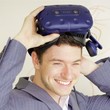
Research: Project Atlas
Company: Z3VR
Project dates: May 1, 2019 – April 30, 2020
Study type: Ground study
Project: Z3VR is developing a space-suitable virtual reality (VR) game that could improve physical fitness and mental well-being. The VR game will have an exercise mode, which will use real-time heart and respiration rates to influence the difficulty and intensity of physically challenging tasks. The use of VR allows users to participate in a variety of exercises, increasing adherence to a physical fitness routine. The game will also have a meditation module that uses biometric data to achieve optimal heart rate by varying the user’s environment, increasing mood-boosting benefits.

Research: Quantification of the lymphatic pump strength and assessment of CSF drainage into the lymphatics during HDT
Institution: The University of Texas Health Science Center at Houston, Houston, TX
Project dates: May 1, 2017 – July 31, 2018
Study Type: Ground study
NASA Risk Addressed: Spaceflight Associated Neuro-Ocular Syndrome (SANS)

Research: OASIS: Optimizing Auditory Stimulation to Improve Cognitive Performance Using SmartSleep
Institution: University of Wisconsin, Madison, WI
Project dates: Jan. 1, 2019 – Dec. 31, 2020
Grant Mechanism: Single PI grant
Study type: Ground study
NASA Risk Addressed: Biomedical
Project: Many astronauts do not get enough sleep, which is known to negatively affect brain function. Dr. Tononi’s group is evaluating ways to optimize sleep without medication, using sounds that increase the type of brain waves that are most restorative during sleep. Their project will conduct the first long-term test to determine how different sound patterns affect next day performance. Subjects will use a wearable device (SmartSleep) capable of delivering sounds in a variety of ways during deep sleep, and a short-term cognitive test developed specifically for astronauts will be administered multiple times per day. The results will determine the behavioral effects of the system, and identify what optimizations are needed to use this technology in spaceflight.
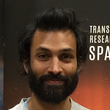
Principal Investigator: Vivekanand Vimal, Ph.D.
Research: Predicting individual differences in learning to manually stabilize attitude in a space flight analog environment.
Mentor: Paul DiZio, Ph.D.
Institution: Brandeis University, Waltham, MA
Project dates: Dec. 1, 2017 – Nov. 30, 2020
Study Type: Ground study
NASA Risk Addressed: Sensorimotor Alterations (SM)
Project: On the journey to the Moon or to Mars, astronauts will experience multiple gravitational transitions that will make them susceptible to spatial disorientation that can jeopardize the mission. In the Ashton Graybiel Spatial Orientation Lab we strap blindfolded humans into a device that is programmed to behave like an inverted pendulum. The participants are instructed to dynamically stabilize themselves using a joystick. In our spaceflight analog condition, the participants are unable to use gravitational cues to determine their location and they become very spatially disoriented. In the first specific aim, we are developing a battery of tests and techniques, including machine learning, to predict the huge individual differences in participants that we find in the spaceflight analog task. In the second specific aim, we are developing an effective training program that will enhance performance in the spaceflight analog condition for all participants.

Research: Wearable Modular Focused Ultrasound Systems for Non-Invasive Stimulation of the Human Brain During Deep Space Exploration
Institution: Brigham and Women's Hospital, Boston, MA
Project dates: Jan. 1, 2019 – June 30, 2021
Grant Mechanism: Single PI grant
Study type: Ground study
NASA Risk Addressed: Biomedical
Project: Long duration space travel present many mental challenges to astronauts, also requiring them to perform challenging tasks in a stressful environment. A new technique called transcranial focused ultrasound allows focused delivery of ultrasound waves to stimulate small regions of the brain, including deep brain areas. Dr. Yoo is working to develop a lightweight, wearable focused ultrasound device that could be used during space flight to modulate brain activity. If successful, such a system could provide a unique way to stimulate the brain to regain or enhance performance during exploration.

Research: Performance Enhancement Through Multi-Modal Stochastic Resonance
Institution: University of Colorado, Boulder, Boulder, CO
Project dates: Jan. 1, 2019 – Dec. 31, 2021
NASA Risk Addressed: Risk of adverse cognitive or behavioral conditions (BMed)
Project: This project investigates the operational benefit of brain stimulation with stochastic resonance. Dr. Anderson’s lab will measure performance enhancement across multiple sensory modalities, in complex tasks, and over repeated use when stochastic resonance is applied through the auditory and vestibular sensory pathways. To enhance neurocognitive and task performance, stochastic resonance (SR) may be used to enhance “information transfer” across multiple sensory modalities, reducing the cognitive workload associated with complex tasks. Dr. Anderson will study improvements in perception within and across modalities when SR is applied to the auditory and vestibular channels, changes in performance on complex tasks requiring multi-sensory integration while using multi-modal SR, and the long-term effects and potential benefits of multi-modal SR in a spaceflight analog environment. Since SR improves perception through multiple pathways, it may be an easy, safe-to-administer way to improve performance in operational spaceflight environments. These improvements in performance achieved through SR may be critical for times of high stress, where resiliency is required and improvement in performance can make the difference, for example during vehicle launch, landing, or emergency situations.

Research: A Multimodal Wearable System for Deep Space Monitoring of Stress and Anxiety
Institution: California Institute of Technology, Pasadena, CA
Project dates: April 1, 2020 – March 31, 2022
NASA Risk Addressed: Risk of reduced physical performance capabilities due to reduced aerobic capacity (Aerobic)
Project: The goal of this project is to develop a holistic hardware/software solution based on a multimodal wearable sensing platform to achieve dynamic deep space stress and anxiety assessment. Sweat could serve as an excellent candidate for non-invasive stress response monitoring as it contains rich physiological information. The hypothesis is that sweat analyte levels monitored continuously along with the key vital signs, when coupled with machine learning approach, will provide accurate and dynamic stress and anxiety assessment. The approach is to simultaneously monitor the molecular analytes in human sweat including stress hormones (i.e., cortisol, adrenaline, and noradrenaline), glucose, lactate, sodium, potassium, pH, sweat rate, and key vital signs (i.e., skin temperature, blood pressure, heart rate, and heart rate viability) using the wearable multimodal sensing platform. Based on a combination of the physical/molecular data and machine learning model, a more comprehensive stress assessment system with significantly higher accuracy and robustness can be achieved.
